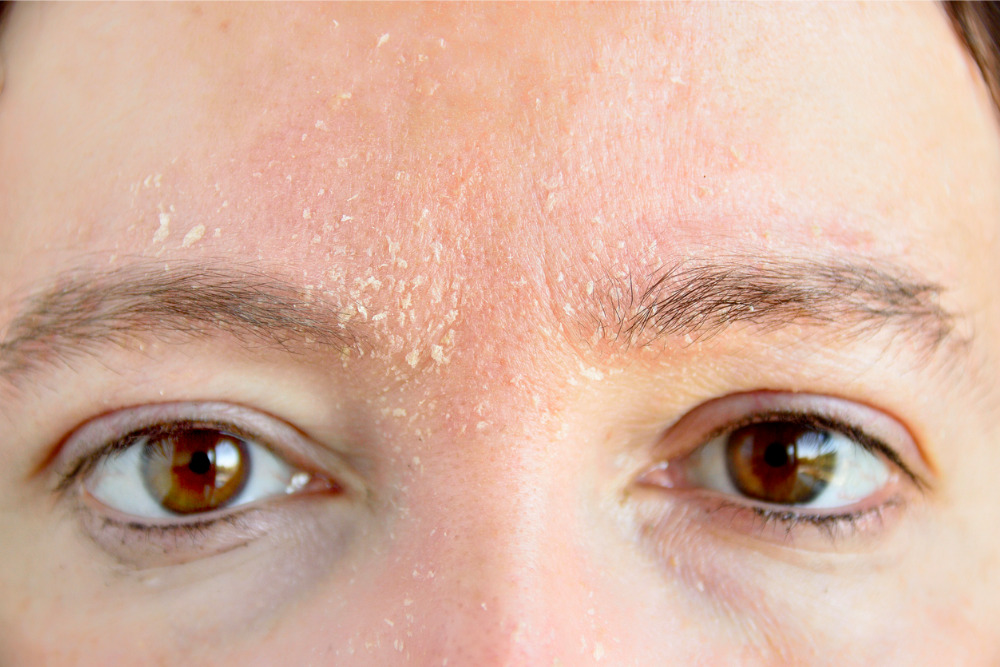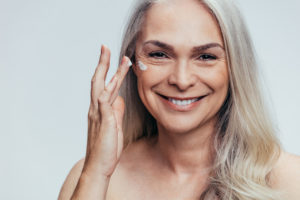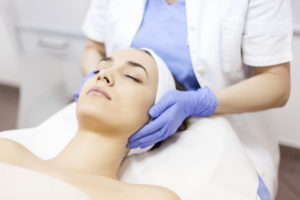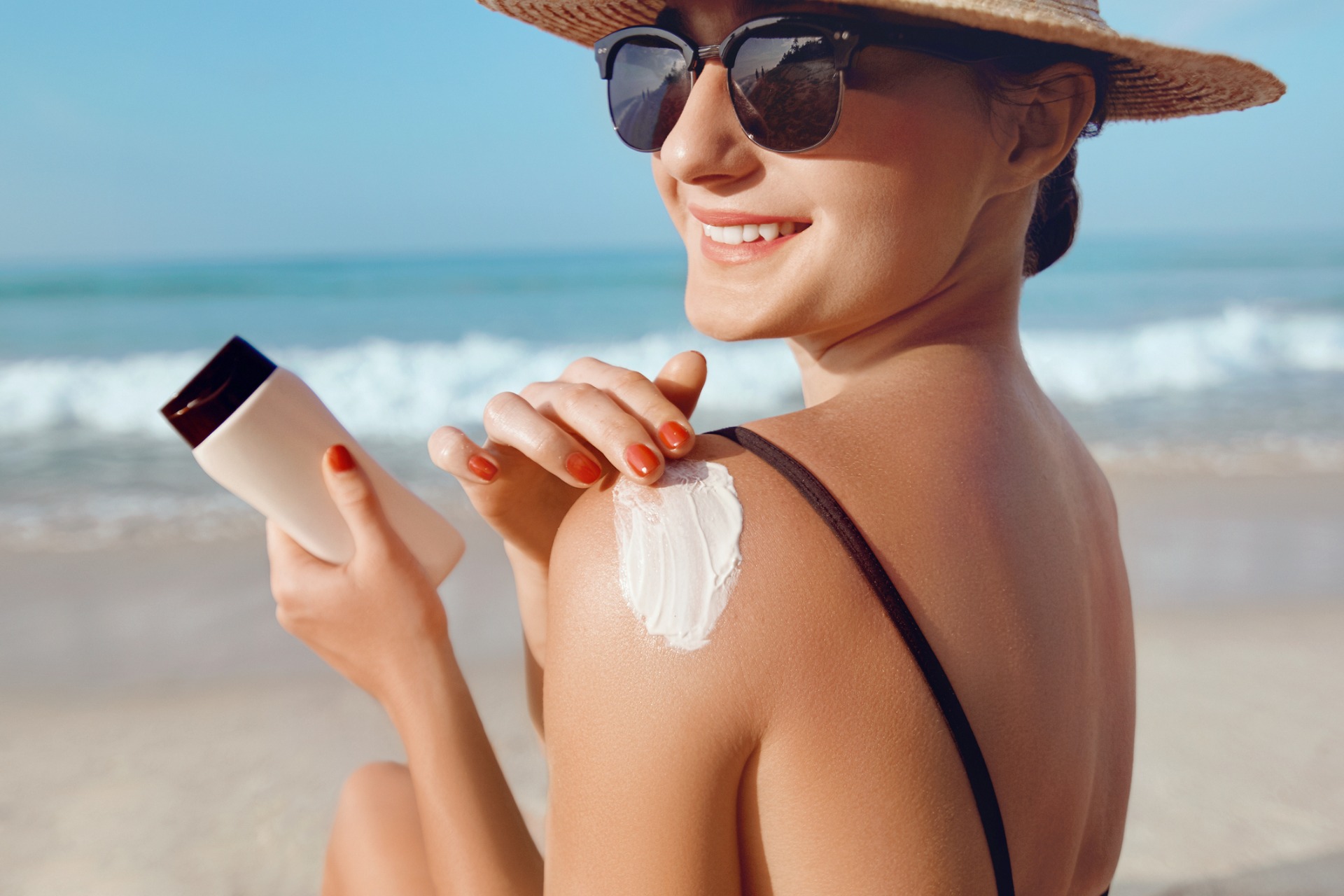Uncover the key to healthy skin with Vargas Face & Skin. We will explain how…

Dry Spots on Skin: How it Happens
Many people suffer from dry spots on skin, which can be sometimes be uncomfortable and embarrassing. Fortunately, dry skin usually can’t do you any harm or affect your health.
If you are suffering from dry spots on skin, here is what you need to know to alleviate your symptoms.
Assess Your Symptoms
If you feel tightness, itchiness, redness, peeling, cracking, you likely will need to explore what is causing your dry skin. Your skin may only become dry during certain times of the year, such as winter but many suffer from dry skin year round.
You may be able to change certain lifestyle habits in order to improve your dry skin. This may involve avoiding harsh chemicals by cutting out certain soaps and using special moisturizers. Smoking is also known to cause dry skin, so you may need to quit in order to see improvement. You can even try to put a humidifier in your home.
You may be able to find some simple, over the counter remedies that work for you.
However, if you’re still struggling you will want to seek professional medical advice. Monitor your skin for a few months and visit a professional if there is excess redness, itchiness, infections or open sores. You may also want to seek help if your dry spots are interfering with your sleep and general wellbeing.
What Causes Dry Spots on Skin?
Dry skin is usually caused by the surrounding environment of an individual. There are also a number of diseases that can cause or worsen dry spots on skin. Here are some of the main causes:
- Warmth – such as central heating, fireplaces, and stoves. Also, hot showers and baths can dry your skin out.
- Cold – winter can cause dry skin for many, especially when there is a sudden drop in temperature.
- Exposure to Water – swimming a lot can cause dry skin for many people, especially in pools filled with chlorine.
- Chemicals – using certain soaps, cleansers, makeup, and other cosmetics can cause dry spots on your skin. Many products remove the oil from your skin which causes dryness.
- Skin Conditions – people who suffer from psoriasis or eczema are more likely to experience dry, cracked skin.
Who Is Usually Affected By Dry Skin?
It is true that anybody can be affected by dry skin, but there are certain people who are more prone to the condition.
First of all, the risk of dry spots on skin increases as you get older. Usually, people in their forties or fifties will have much worse symptoms than those who are younger. Also, those who work around water or come into contact with water regularly often suffer from dry skin.
There are a number of risks when it comes to dry skin, although they are rare. Infections can happen if bacteria enters into deep cracks in the skin.
How to Prevent Dry Skin

There are plenty of things you can do at home to prevent yourself from getting overly dry skin. Some of which we have outlined below.
- Try to moisturize frequently so that water doesn’t escape from your skin’s surface.
- Bundle up during the winter months; wear a hat, scarf, and gloves to prevent your skin from being exposed to the cold air.
- You may also want to reduce the length of your bath or shower time and keep the temperature lukewarm rather than boiling hot.
- When doing household chores you should also use rubber gloves so that you can limit exposure to harsh cleaning products and water.
- As we have already stated, cutting out soaps, shampoos, and cosmetics that are filled with drying chemicals can also help to improve your symptoms. Opt for gentler options that are sold in supermarkets and pharmacies. You may also want to change your laundry detergent to a more gentle formula so that it is softer on your skin.
- Try to wear clothing that is kind to your skin. Softer fabrics such as cotton and silk will help your skin to breathe. Avoid harsh material such as wool as it has a tendency to irritate sensitive skin.
- Like we said earlier, a humidifier can help you when indoors, as it keeps moisture in the air.
Do You Need Medical Advice?

If you are planning on making an appointment with a specialist, you will want to be prepared for the questions they may ask you in an appointment. Your first port of call should be a skin specialist or doctor.
Start by making a list of questions you would like the doctor to answer for you. When you get into the office you might forget something important so it’s best to write everything down. You may want advice on skincare routines or you could be worried about the cause of your dry skin. Ask anything you think might help you get to the root of the problem.
Your doctor is likely to ask you a lot of questions about your lifestyle, any other symptoms, the pain levels, anything that aggravates your skin or anything that improves it. All of these questions are completely normal and they will help the doctor to get a better picture of your dry skin.
Contact the Vargas Face and Skin Center
Don’t suffer in silence if you have a long term skin condition. Many people go for years without speaking to a dermatologist when the problem can be solved with treatment or advice. Try to alleviate your symptoms with home remedies at first, but do not hesitate to contact the professionals at Vargas Face and Skin Center for a consultation if you are still uncomfortable or worried about your dry skin.








This Post Has 0 Comments